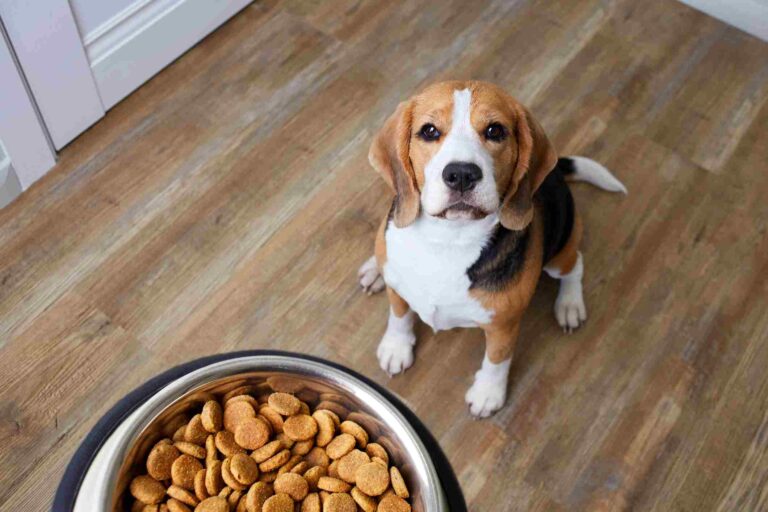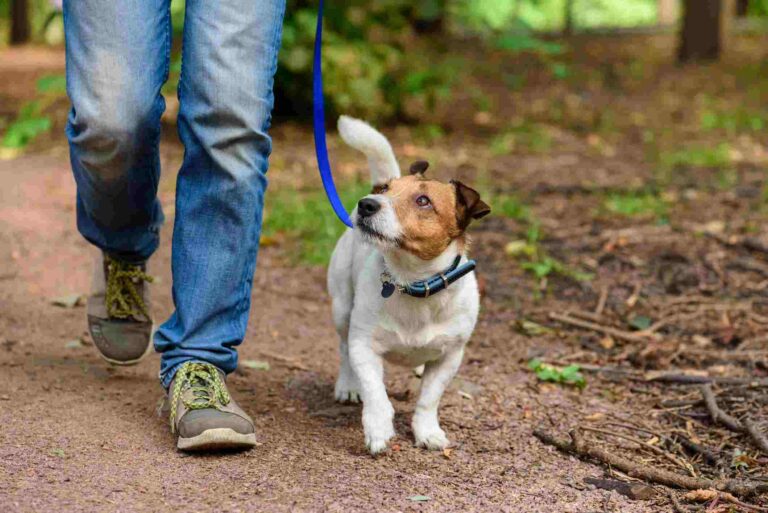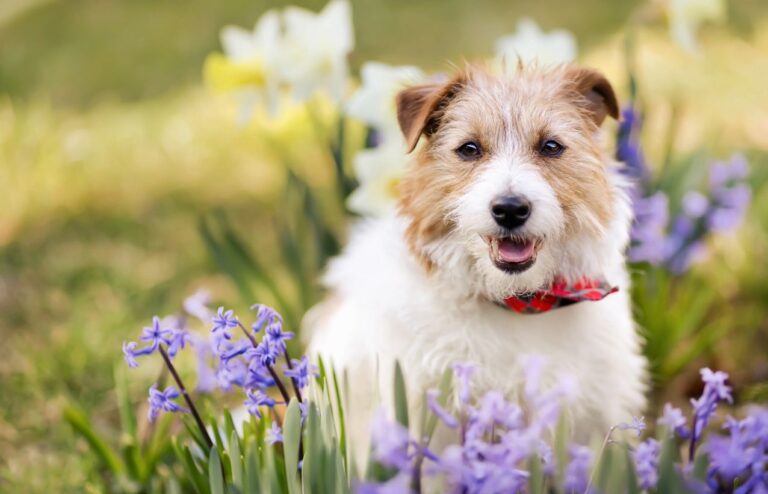During puppy training, it’s helpful to use food as a reward to encourage good behavior. The idea of managing when and how a puppy receives food is called their “food economy.” A strong food economy creates long-lasting positive results with puppies. This blog will provide advice on managing when your puppy gets food for training.
Using kibble as a reward
Establishing a strong food economy begins when your puppy first arrives home. It’s important to choose the right foods and feeding routines, so we recommend consulting with your veterinarian to determine the best food options.
A puppy’s meal can be directly used for training. Not only does it save on calories but it can influence future training. While your puppy may not exhibit any behavioral changes at three months old, their early food choices can influence how they respond to rewards during training. For instance, if your puppy is accustomed to eating wet food at mealtimes, a dog treat may not be appealing when teaching them to walk on a leash and not bolt towards the squirrel. On the other hand, if your puppy has been raised on kibble, offering high-value treats, such as cooked chicken, is more likely to reinforce their attention during training sessions.
Meals for training
You should offer your puppy kibble in different ways to encourage them to work for their food. This helps provide mental enrichment and makes mealtimes more fulfilling. One way to do this is to use treats as a reward during training, like when teaching “sit,” “follow,” and “place.”
Additionally, you can offer enrichment activities that make mealtimes more engaging. You can do this by using Wobble boards, Kongs, and puzzle toys and other interactive activities.
Meals for socialization
Kibble and treats can be useful rewards for teaching socialization skills. There are many ways to socialize your puppy, such as taking them for walks, visiting one of Kansas City’s many coffee shops, visiting dog-friendly venues, including Bar K, or exploring the best dog parks in Kansas City.
If your puppy enjoys kibble, you can use it as a substitute for treats in new environments. For more information on puppy socialization, check out our Co-founder and Certified Dog Behavior Consultant, Sean Savage’s video on puppy socialization.
Meals for bonding
If you observe that a family member is not bonding with the puppy, encourage them to hand-feed the puppy during mealtime. This is an excellent way to involve children in the puppy’s development and teach them how to be gentle and handle the puppy properly.
We recommend having the child ask or encourage the puppy to perform a simple behavior, such as “auto-sit”. This helps your puppy associate your child’s presence with positive interactions and automatically sit when your child approaches.
Feeding meals in their crate
Feeding your puppy in its crate can be beneficial because it helps create a positive association with the crate and can reduce the likelihood of potty accidents. When feeding your puppy, place the food directly on the crate floor rather than in a bowl. This encourages the puppy to avoid going potty in the crate.
Free feeding
We recommend not allowing your puppy free access to their food bowl or refilling it whenever it is empty. There are several challenges with free feeding, which includes that:
- Your puppy will be less inclined to work for treats or kibble if they always have access to food.
- Mealtime habits are important in judging your puppy’s health. If your dog is eating much less than usual, you may notice that they aren’t feeling well. If you constantly refill their food bowl, you may not notice a change in food intake.
- Managing your puppy’s weight can be difficult with free feeding. Always adjust their portion sizes based on the recommended amounts for their health.
- Regular feeding times help with potty training, as you know when they are due to go out to potty. This is especially important if you can’t be at home with them for part of the day.
- Structured mealtimes also encourage your puppy that food is not always available, so they will eat when given food.
If you notice that your puppy is often not eating all of their food, we recommend checking with your vet if they have a different brand suggestion or a food topper that can make meals more appealing.
We are here to help
Would you like help teaching your puppy to obedience commands, socialization skills and addressing any behavioral issues early? You can schedule a free consultation with our Pet Behavior Team. We offer a variety of training programs, including private sessions, board-and-train programs, and virtual consultations.
Our Certified Applied Animal Behaviorist and Co-founder, Dr. Echterling-Savage, provides virtual training programs. During which she designs a personalized training plan and provides guidance to achieve your training goals.




